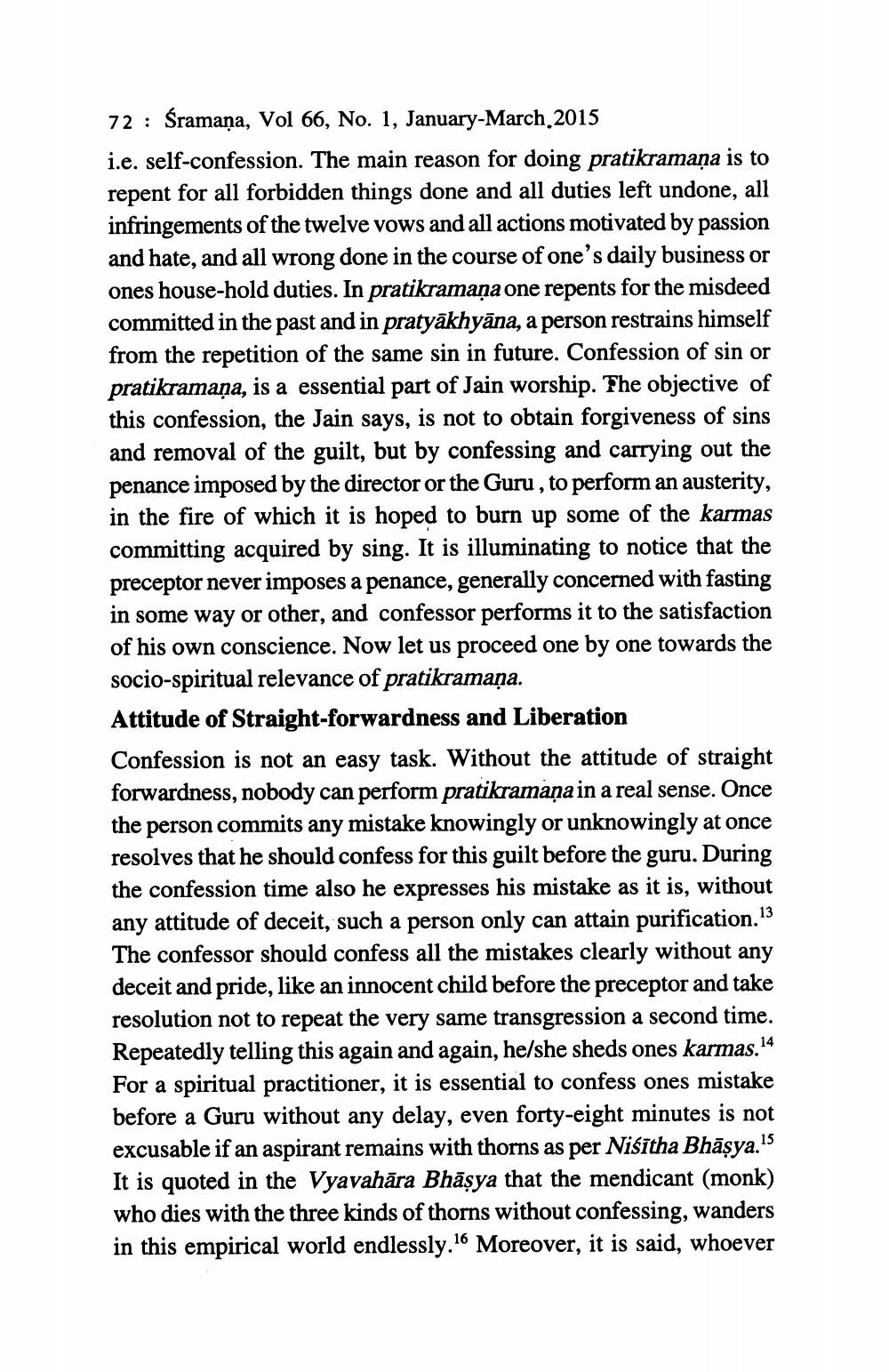________________
72 : Śramaņa, Vol 66, No. 1, January-March 2015 i.e. self-confession. The main reason for doing pratikramana is to repent for all forbidden things done and all duties left undone, all infringements of the twelve vows and all actions motivated by passion and hate, and all wrong done in the course of one's daily business or ones house-hold duties. In pratikramaņa one repents for the misdeed committed in the past and in pratyākhyāna, a person restrains himself from the repetition of the same sin in future. Confession of sin or pratikramaņa, is a essential part of Jain worship. The objective of this confession, the Jain says, is not to obtain forgiveness of sins and removal of the guilt, but by confessing and carrying out the penance imposed by the director or the Guru , to perform an austerity, in the fire of which it is hoped to burn up some of the karmas committing acquired by sing. It is illuminating to notice that the preceptor never imposes a penance, generally concerned with fasting in some way or other, and confessor performs it to the satisfaction of his own conscience. Now let us proceed one by one towards the socio-spiritual relevance of pratikramaņa. Attitude of Straight-forwardness and Liberation Confession is not an easy task. Without the attitude of straight forwardness, nobody can perform pratikramaņa in a real sense. Once the person commits any mistake knowingly or unknowingly at once resolves that he should confess for this guilt before the guru. During the confession time also he expresses his mistake as it is, without any attitude of deceit, such a person only can attain purification.13 The confessor should confess all the mistakes clearly without any deceit and pride, like an innocent child before the preceptor and take resolution not to repeat the very same transgression a second time. Repeatedly telling this again and again, he/she sheds ones karmas. 14 For a spiritual practitioner, it is essential to confess ones mistake before a Guru without any delay, even forty-eight minutes is not excusable if an aspirant remains with thorns as per Niśītha Bhāșya.15 It is quoted in the Vyavahāra Bhāșya that the mendicant (monk) who dies with the three kinds of thorns without confessing, wanders in this empirical world endlessly.16 Moreover, it is said, whoever




